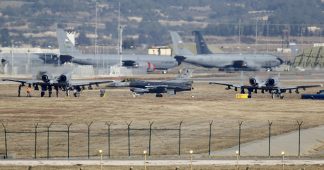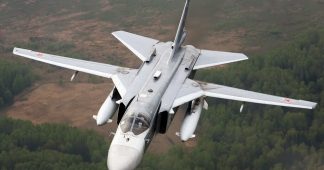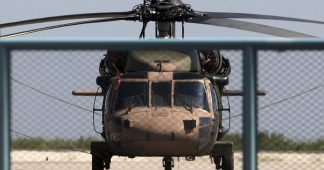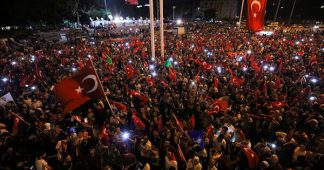Here is a selection of interesting articles about what is going on in Turkey and around it.
Russia Keeps Its Friends Close and Turkey Closer
Henry Kissinger reminds us that in international relations, states do not have permanent friends or enemies, only interests. That lesson reverberated Tuesday in St. Petersburg, where Turkish President Recep Tayyip Erdogan let bygones be bygones with his “dear friend, the esteemed Vladimir” in an ironic (and somewhat excessive) display of diplomatic reconciliation.
Over the course of only seven months, Turkey and Russia have gone from ranking each other as public enemy No. 1 to catching up as old friends. Erdogan and Russian President Vladimir Putin seem to be treating the November 2015 shootdown of a Russian Su-24 by Turkish F-16s and the feuding that followed as an anomaly in an otherwise chummy relationship. As Putin said, “Our priority is to bring our relations back to pre-jet crisis level” — basically to get past this ugly episode and have everything go back to normal.
Turkey’s Syria policy changes: With or without Assad?
It seems that Turkey’s slow turn away from its failed Syria policy has been completed with the bloody coup attempt of July 15, following deals to normalize relations with Israel and Russia in late June. It has taken almost a year since Ankara’s Syria policy started to change, with Turkey first deciding to open its strategic İncirlik base for U.S.-led coalition flights against the Islamic State of Iraq and the Levant (ISIL) last July.
As soon as Turkey opened the İncirlik base for anti-ISIL operations, both ISIL and the outlawed Kurdistan Workers’ Party (PKK) restarted their acts of terror, killing hundreds and wounding nearly one thousand in suicide attacks in Turkey’s biggest cities. A few months after İncirlik was opened to U.S.-led flights, Russia deployed its air forces at the Khmeimim base near Latakia in Syria, in addition to the naval base in Tartus. Events escalated to reach the downing of a Russian jet by Turkey after crossing the border with Syria, leading to Ankara’s diplomatic crisis with Moscow that only ended on June 27, a day after the deal with Israel was completed.
Syria and the Coup in Turkey
This week has been marked by two major events: the USA and Russia agreed to a common plan for military cooridination in Syria and the failed coup in Turkey has been followed by a massive purge of the Turkish elites.
Syria:
The Russians had really no option but to accept working with the USA in Syria. The way in which they did this was very elegant, however: Lavrov and Kerry have agreed to a joint long-term ceasefire whose exact terms are to remain secret, which indicates to me that the Russians forced the US into concessions which the latter don’t want to be made public. How do we know that it was Russians who forced concessions on the USA and not the other way around? Simple – there was no US “leak” to the media and the Russian bombers have resumed their operation with a new intensity. Besides, it is pretty obvious that in Syria at least Moscow holds all the cards now and Kerry has therefore no means to put pressure on Russia even if he wanted to.
Turkey Coup: Undone by Demographics
Turkey has a proud and rich history of military coups. As analysts tirelessly point out, they are even sanctioned by the Constitution as a means of preserving secularism.
However, those days have come to an end.
The abortive coup of the past few days was in all likelihood the dying gasp of 20th century Turkey.
Sieren’s China: Erdogan’s Turkey is a high-risk partner
Turkey is an important bridge to Europe for China. The countries cooperate closely despite strained relations over China’s Uighur minority. The recent coup attempt came at an inopportune moment, DW’s Frank Sieren writes.
China’s government released its first statement the day after the coup attempt in Turkey. Foreign Ministry spokesman Lu Kang said he hoped that Turkey’s government would restore order as soon as possible. The statement was only made when it was clear that this would indeed happen. If the coup had been successful, it might have taken years before bilateral relations could be restored to their current level.
WHAT SHOULD BE DONE WITH US NUKES IN TURKEY?
The failed coup in Turkey has become the source of many discussions and troubles. All of them are interlinked with the US, NATO, Fethullah Gulen, the EU, Syria, and the refugee crisis. Many are fearful of democratic norms and human rights and the possible influence of Washington in the near future.
Turkey: Background and U.S. Relations In Brief











